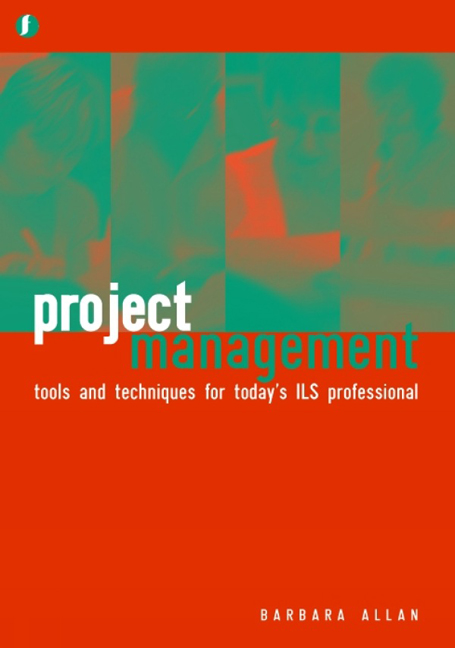Book contents
- Frontmatter
- Contents
- List of tables
- List of figures
- Acknowledgements
- Part 1 Introduction
- Part 2 The project life cycle, systems and processes
- 2 The project life cycle and project analysis
- 3 Planning the project
- 4 Implementation
- 5 Evaluation and dissemination
- 6 The money side of projects
- 7 Using ICT to support the project
- Part 3 Projects and people
- Appendix A The language of funding
- Appendix B Resources
- Index
6 - The money side of projects
from Part 2 - The project life cycle, systems and processes
Published online by Cambridge University Press: 08 June 2018
- Frontmatter
- Contents
- List of tables
- List of figures
- Acknowledgements
- Part 1 Introduction
- Part 2 The project life cycle, systems and processes
- 2 The project life cycle and project analysis
- 3 Planning the project
- 4 Implementation
- 5 Evaluation and dissemination
- 6 The money side of projects
- 7 Using ICT to support the project
- Part 3 Projects and people
- Appendix A The language of funding
- Appendix B Resources
- Index
Summary
Introduction
The ability to understand and manage the money side of projects is an essential skill for all project managers. Although some ILS projects are carried out within normal departmental budgets, many projects are funded by external sources. This means that many information workers become involved in obtaining external funding and then managing a budget. The focus of this chapter is funding and obtaining funds from external sources. In addition, the chapter covers current approaches to funding, external sources of funding, bidding and tendering for projects, managing the finances, and audits.
Appendix A contains a glossary of common terms relating to the money side of projects.
Current approaches to funding
The last ten years have seen the rise of a competitive bidding culture in which different organizations bid for public or private sector funds. Funding is available from a wide range of sources including international organizations, the European Union, central and regional governments, businesses, charitable and other special funds, and individual donors.
This bidding culture is driven by a range of factors. First, public funding has been reduced. Secondly, there is a belief that bidding promotes better use of resources, increased accountability and creativity. Sometimes there can also be a desire to fund and support particular ways of working, or to facilitate cross-organizational and/or cross-sectoral approaches. Finally, the integration of a diverse range of organizations, departments and services can play its part.
Today in the UK and other countries a wide range of projects on themes as varied as ICT developments, social inclusion needs, improvement of storage to meet standards, extending access, digitization of resources, lifelong learning, information provision, remote services, for example to rural communities, upgrading and relocating accommodation are supported by external funding.
The work of Parker et al. (2001) demonstrates the current importance of the bidding culture in public sector library and information work. In their research report The Bidding Culture and Local Government: effects on the development of public libraries, museums and archives they state that ‘Bidding for funds, especially additional monies, is now widely accepted in the archives, libraries and museums sectors as part of the everyday management agenda.’ Their findings indicate that 73% of archives, libraries and museums submitted bids for at least one or two major projects during the study period and that only 3% of libraries had not submitted bids for projects worth over £10,000.
- Type
- Chapter
- Information
- Project ManagementTools and techniques for today's ILS professional, pp. 93 - 107Publisher: FacetPrint publication year: 2004



